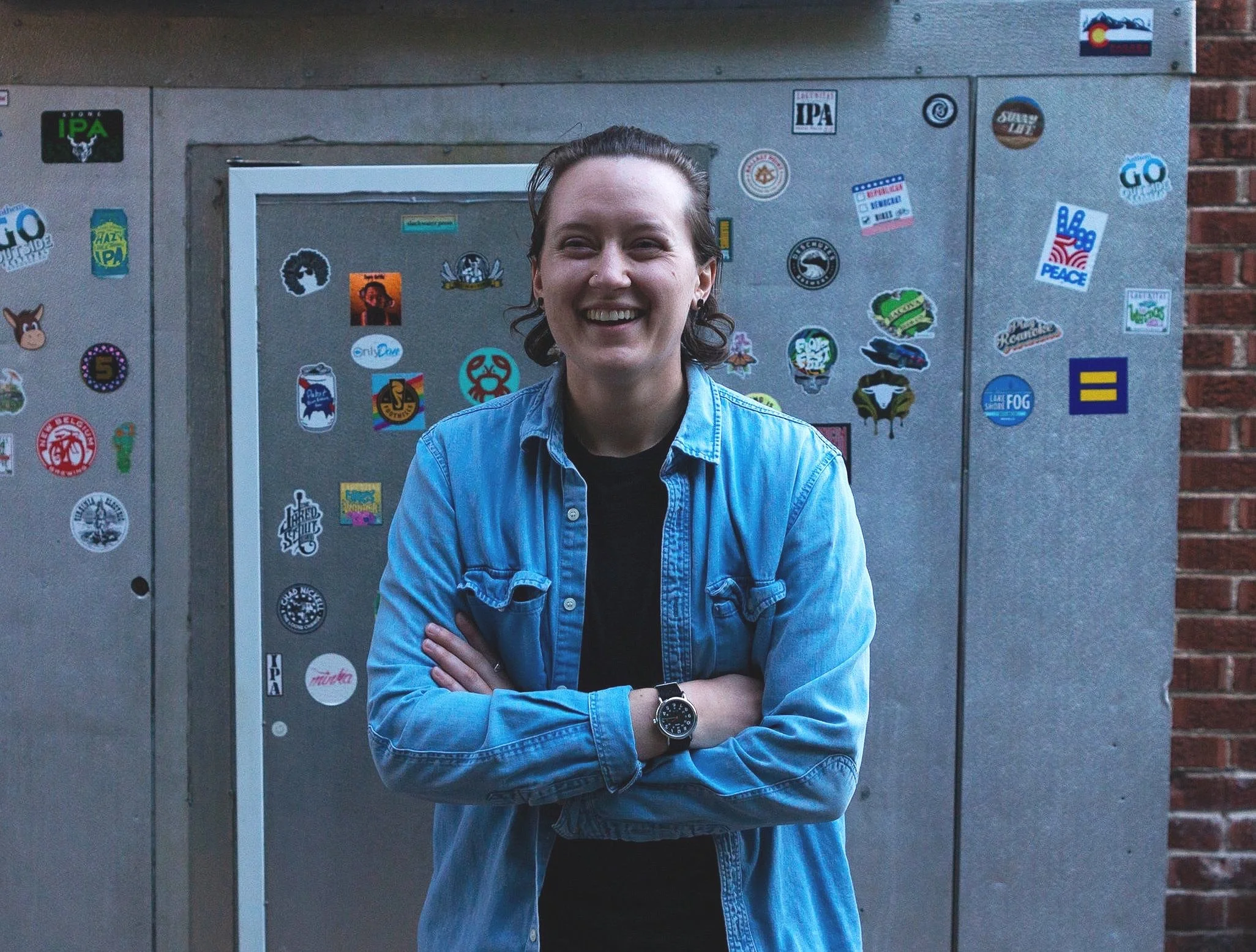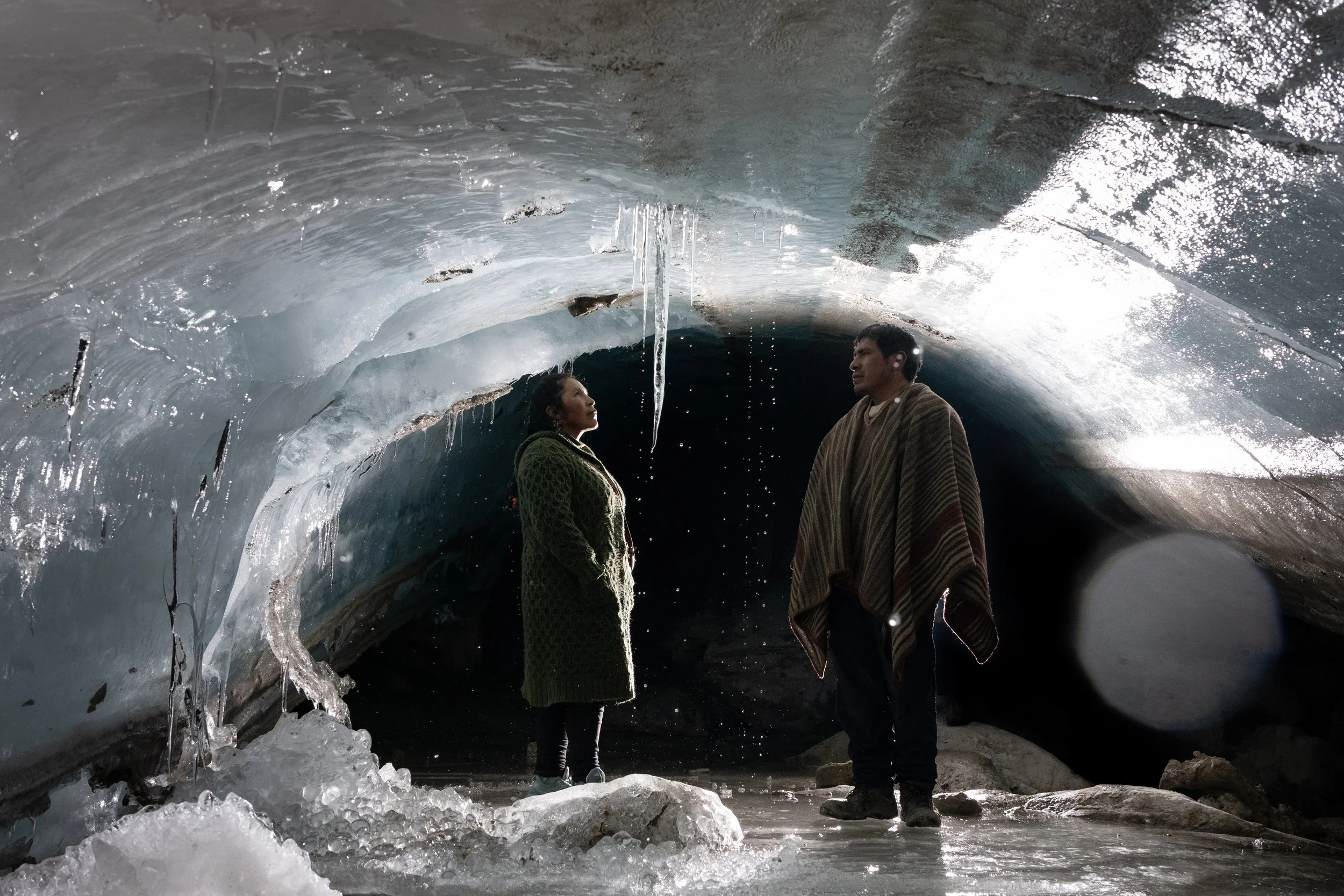PHOTO: Matilde Simas
Growing up as a first-generation Portuguese-American woman, in the diverse city of New Bedford, Massachusetts, Matilde Simas spent her weekends participating in traditional Azorean church festivals and learning about her family’s rich history. At 14, she traveled to São Miguel, and it was during this trip that photography entered her life.
“At such a young age I found myself able to fully immerse in the culture of my ancestors and document it with my camera for my family and friends. It was an exciting time in my life." said Simas.
PHOTO: Matilde Simas
Simas spent two years studying digital photography at the Rhode Island School of Design and soon after started her own photography business, Mattie’s Studio, in North Andover, Massachusetts. While portrait photography was her first passion, Simas slowly realized that she wanted to do something more with her work.
“Although the causes I chose to [photograph] are often heartbreaking, it’s never my intention to tell a sad story – I always intend to show hope in all my pictures,” she said.
PHOTO: Matilde Simas
Simas has heard many heartbreaking stories of human trafficking during her years as a photographer, but her desire to share this inconvenient truth and inspire social change has only grown.
Simas’ journey as a humanitarian and photojournalist began in 2014 after a trip to Namibia, when she volunteered to photograph a children’s soup kitchen, Home of Good Hope, in a community where hundreds of children had been left orphaned due to the AIDS/HIV epidemic. Her time documenting the organization was a pivotal moment, and she realized the power of photography as an instrument of social change.
PHOTO: Matilde Simas
in 2016, Simas joined Photographers Without Borders in to capture the work of HAART Kenya, an organization that works to combat human trafficking and empower survivors. During her time with HAART, Simas discovered how her identity as a woman helped her connect with the survivors.
“There’s a special role for women photographers in documenting human conditions; our ability to connect on a more emotional level with others lends itself to this type of work. Our sensitive approach to documenting human conditions is celebrated, and we tend to be allowed access to more sensitive issues because of this,” she said.
PHOTO: Matilde Simas
“While working with HAART Kenya, I was given the honour of interviewing many of the human trafficking survivors. During an initial interview with one survivor, she confided that she’s far more comfortable sharing her story with a female photographer. In previous interviews with male photographers, she had difficulty digging deep to reveal her truth. After I finished her interview and photos, she thanked me and said, ‘For the first time I feel undrained by this process. For the first time I’m owning my story, and this is because of you.’ There is an undeniable bond between women that cannot be broken. Nothing brings me greater joy than using my art and love to provide a safe forum for another woman to share her story,” Simas added.
Last year, Simas collaborated with seven adolescent human trafficking survivors to create a portrait series entitled 'Faces Behind Atrocity'. With the use of masks and the powerful testimonials of the survivors, Simas hopes to raise awareness and encourage people to join the movement in supporting organizations that work to fight human trafficking. In the real world, 'wearing a mask' often is a way to hide from one’s true self, however, in this series, the mask represents a place for survivors to heal and reveal their authentic selves. The series has recently won the International Photography Award from the Lucie Foundation.
PHOTO: Matilde Simas
“Human trafficking is one of the most difficult subjects to document due to the trauma these women have endured. Because of this, it’s rarely documented using a combination of photography and testimonies. My goal was to empower the survivors by creating a safe, sensitive, trusting, and collaborative environment,” Simas said.
“By engaging the public through art, I can help transform public perceptions; educate individuals, communities, and policymakers; and inspire action to put an end to this horrific crime against humanity.”
Although photographing human trafficking can be an upsetting experience, bearing witness to the enduring power of the human spirit has provided her even more motivation. Currently, Simas is working towards a Social Justice certificate at Harvard University and will be starting a human trafficking class this semester. She will also be joining Artworks for Freedom, a nonprofit organization based in Washington, DC which raises awareness about modern day slavery and human trafficking, as a contributing artist.
PHOTO: Matilde Simas
As well, Simas has been planning a PWB Workshop for 2019, and is looking forward to sharing her photography experiences and teaching a new group of storytellers.
Click here for more information on HAART Kenya, and how you can support their work.
You can find additional photos at Artworks for Freedom, and for even more of Matilde Simas' photography, click here for her website.
This article was first published in PWB Magazine #10, on sale now.


















